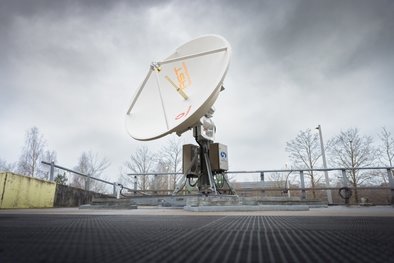Vodafone has chosen Germany-based Inter.link to provide automated, high-quality interconnectivity between its European networks and those of third-party Internet Service Providers (ISPs), content players, and other operators. The move will bolster Vodafone’s existing wholesale business offering a broad range of connectivity and messaging services.
Inter.link delivers automated, carrier-grade backbone infrastructure at speeds of 100 gigabits per second (Gbps) or 400 Gbps, connecting essential intersections across diverse networks within the broader Internet ecosystem. 1 Gbps typically supports around 1.5 million instant messages.
Rapidly scale interconnection
Vodafone will use Inter.link’s automated service, which is available in multiple countries, including 30 points of presence in Germany, to more quickly and easily aggregate both mobile and fixed broadband traffic between itself and multiple third-party providers of all sizes.
By utilising the Inter.link system, called FlexPeer, instead of traditional physical internet exchanges, third-party providers can efficiently scale capacity into Vodafone’s fixed and mobile access networks as needed to serve their customers across Europe. They can connect multiple sites over a single ‘Layer 2’ data link, adjusting capacity to actual traffic without affecting the user experience.
Initial launch in Germany
Vodafone, in partnership with Inter.link, will launch the service in Germany next month, where Vodafone currently manages over 4,000 interconnections with other providers. The company plans to extend the service to additional countries in 2026.
This model of interconnection has been developed to address the evolving complexities of a rapidly expanding, multi-tiered commercial internet environment. It enhances resilience and minimises operational overheads, while maintaining efficient Internet traffic flow between end users, their providers, and the services being accessed—such as video streaming, messaging, or browsing social media applications.
Reduce peering costs
Transitioning to an automated and flexible interconnection system will reduce time, resources, and peering costs (expenses for connecting different networks) for Vodafone and its wholesale customers. This approach is particularly beneficial for managing the numerous points that connect infrastructure to exchange internet traffic directly. It also puts less strain on the engineering team that plan where the traffic goes when volumes increase.
Focus on customer service
By integrating Inter.link’s solution at the edge of Vodafone’s networks, Vodafone can concentrate on delivering improved services to other mobile network operators and broadband providers, thereby enhancing its existing carrier services model. Inter.link’s automation streamlines processes and expedites the customer journey by offering single sign-on access and one-click provisioning.
Vodafone aims to migrate all traffic in Germany from existing Internet Exchange Points to the new system by the end of 2025. In addition to Europe, the two companies will enable third party providers connecting to Vodafone’s wider global network infrastructure to also leverage Inter.link’s automated platform for improved latency, resiliency and quality.

























